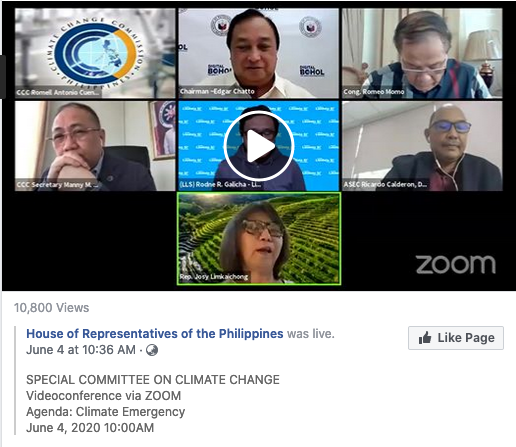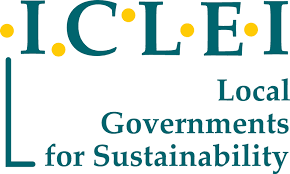Philippine Congress opens dialogue on declaring climate emergency
by John Leo Algo, Living Laodato Si (Philippines)
The Philippine House of Representatives Special Committee on Climate Change deliberated on the declaration of a national climate and environment emergency on 4 June 2020, in recognition of the need for strengthened and coherent action.
In an online session, the committee discussed House Resolution Nos. 724 and 761, authored by Reps. Loren Legarda and Edgar Chatto respectively, the adoption of which would allow the Philippines to join more than 1300 governments worldwide in recognizing the urgency of scaling up climate change mitigation and adaptation measures to avoid catastrophic impacts.
HR 761 specifically calls for local governments to adopt a “No to Coal” or “No to New Coal Policy”, and for countries and local entities with high greenhouse gas emissions to invest in the development of renewable and sustainable energy and take responsibility for their contribution to climate change and environmental degradation. While the Philippines is a not a major emitter, the current long-term energy plans would allow for the construction of more coal-fired power plants, which conflicts with its position on championing climate justice and averting loss and damage in international talks.
HR 724 states the need for an auditing of relevant national and local government units regarding their compliance to existing national and international laws on climate change, disaster risk reduction management, and environmental protection. Issues of bureaucratic inefficiency, weak multi-agency and multi-stakeholder collaboration, and financial challenges have hindered the effective implementation of many of these laws, which an emergency declaration aims to address.
Other notable provisions include strengthening climate-related research and development, local and national climate risk assessments, the creation of a national integrated risk information system and a national loss and damage registry.
Civil society representatives expressed their support for the resolutions, albeit with recommendations on ensuring a just transition, protection and support for vulnerable communities and sectors, the finalization of the country’s Nationally Determined Contributions, and strengthening local capacities for adaptation.#





 c/o Rice Watch Action Network
c/o Rice Watch Action Network